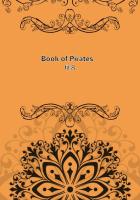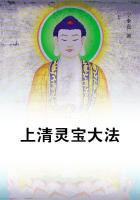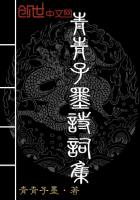The complex figure may be also regarded as a combination of ******r figures.It remains precisely the same,though we perceive that besides being one figure it is also a combination of figures.This runs through all mathematical truths,and,Ithink,indicates Mill's precise difficulty.He says quite truly that to know the existence of a fact you must always have something given by observation or experience.The most complex mathematical formulae may still be regarded as equating different statements of the same experience.The difference is only that the experience is evolved into more complex forms,not by any change in the data supplied,but by an intellectual operation which consists essentially in organising the data in various ways.The reasoner does not for an instant desert fact;he only perceives that it may be contemplated in different ways,and that very different statements assert the very same fact or facts.Our experience may be increased,either by the entrance of new objects into our field of observation,or by the different methods of contemplation.The mathematician deals with propositions which remain equally true if we suppose no change whatever to take place in the world,or,as Mill puts it,'if all the objects of the universe were unchangeably fixed.'(53)His theories,in short,construct a map on which he can afterwards lay down the changes which involve time.The filling up of the map depends entirely upon observation and experience;but to make the map itself a mere bundle of accidental coexistences is to destroy the conditions of experience.The map is our own faculty of perception.
'There is something which seems to require explanation,'says Mill,(54)'in the fact that an immense multitude of mathematical truths.can be elicited from so small a number of elementary laws.'It is puzzling when you identify Newton with Diamond on the ground that they both see the same 'fact.'But it is no more puzzling than anything else,as indeed Mill proceeds to show,when we observe the method by which in arithmetic,for example,an indefinite number of relations is implied by the ****** process of counting.The fact is the same for all observers,in so far as they have the same data;but to perceive the data already implies the germ of thought from which all the demonstrative sciences are evolved.The knowledge can be transformed and complicated to an indefinite degree by simply identifying different ways of combining the data.Mill,in his anxiety to adhere to facts and experience,fails to recognise adequately the process by which ****** observation is evolved into countless modifications.The difficulty appears in its extreme form in the curious suggestion that even the principle of contradiction is a product of experience.Mill is so resolved to leave nothing for the mind to do,that he supposes a primitive mind which is not even able to distinguish 'is not'from 'is.'It is hard to understand how such a 'mind,'if it were a 'mind,'could ever acquire any 'experience'at all.So when Mill says that the burthen of proof rests with the intuitionist,he is,no doubt,quite right in throwing the burthen of proof upon thinkers who suppose particular doctrines to have been somehow inserted into the fabric of knowledge without any relation to other truths;but it is surely not a gratuitous assumption that the mind which combines experience must have some kind of properties as well as the things combined.If it knows no 'truths'except from experience,it is at least possible that it may in some way react upon the given experience.This,at any rate,should be Mill's view,who takes 'mind'and 'body'to be unknowable,and all knowledge of fact to be a combination of 'sensations.'He only requires to admit that knowledge may be increased either by varying the data or by varying the mind's action upon fixed data.
In neither case do we get beyond 'experience.'In many places,Mill seems to interpret his view in consistency with this doctrine.His invariable candour leads him to make admissions,some of which I have noticed.Yet his prepossessions lead him to the superfluous paradoxes which,for the rest,he maintains with remarkable vigour and ingenuity.
One other device of the enemy raised the troublesome question of inconceivability as a test of truth,which brought Mill into conflict not only with Whewell and Hamilton,but with Mr Herbert Spencer.I will only notice the curious illustration which it affords of Mill's tendency to confound statements of fact with the purely logical assertion that two modes of stating a fact are precisely equivalent.The existence of Antipodeans,in his favourite illustration,(55)was declared to be 'inconceivable.'
Disbelief in their existence involved the statement of fact:gravity acts here and at the Antipodes in the same direction.
That statement could of course be disproved by evidence;and there is no reason to suppose that the truth,once suggested,would be less 'conceivable'to Augustine or,say,to Archimedes,than to Newton.It also involved the assertion:men (if the direction of gravity were constant)would drop off the earth at the Antipodes as they here drop off the ceiling.The denial of that statement is still 'inconceivable,'though the statement ceases to be applicable.Mill,however,infers that,as an 'inconceivability'has been surmounted,'inconceivability'in general is no test of truth.'There is,'he says,(56)'no proposition of which it can be asserted that every human mind must eternally and irrevocably believe it,'and he tries,as Ihave said,to apply this even to the principle of contradiction.















